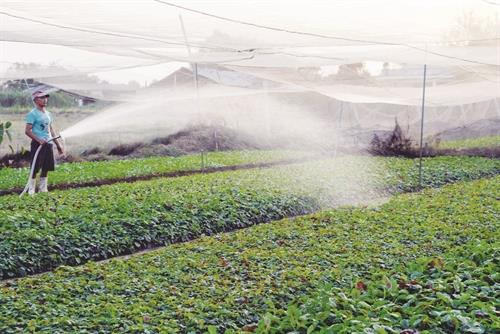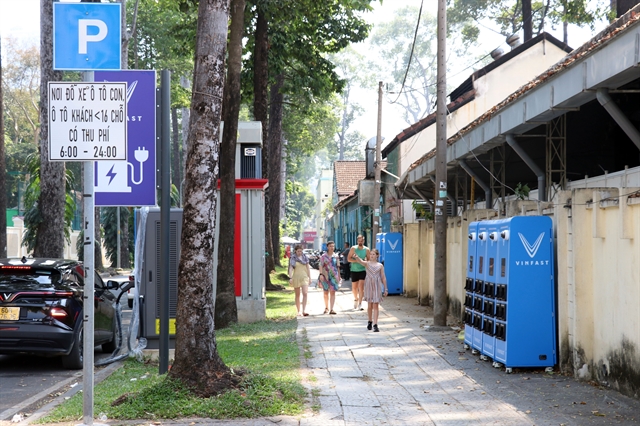 Society
Society


|
| Ngã Ba Giồng Co-operative in HCM City's outlying Hóc Môn District produces 'safe' vegetables. VNA/VNS Photo |
HCM CITY — The programme on vocational training for workers in rural areas should be modified amid changes caused by rapid urbanisation, the HCM City's Department of Labour, Invalids and Social Affairs has said.
Speaking at a recent conference, Nguyễn Văn Lâm, the department’s deputy head, asked all district officials in the city to consider how the programme should change, and whether vocational training in non-agricultural areas become the focus.
He said the districts should conduct surveys of farmers, enterprises and young people to identify specific demands and needs in rural areas.
“The most important thing is that people get a job after vocational training. That is the main goal,” Lâm said.
In many rural areas, workers and farmers often fail to apply what they have learned in courses. They are usually sent to vocational courses by local labour officials who must reach a yearly quota of workers sent to vocational training.
Phan Đỗ Huy Thông, vice rector of the Củ Chi Vocational Training School, said that workers in rural areas viewed vocational training as ineffective and were reluctant to participate.
A representative from the department’s division in Nhà Bè District said that work in logistics and at industrial parks in the district would require vocational training to meet enterprises’ demands.
Dr Lê Ngọc Đức of the Hi-tech Agriculture Training Centre said that although agriculture accounted for only 0.9 per cent of the city’s gross domestic product growth, nearly 1 million people were still employed in the sector in the city.
Vocational training in agriculture is still necessary for these workers, Đức said, adding that the centre this year co-operated with local farmers’ associations to open three short courses in technologies that could be used in farming.
Phạm Văn Chiến, deputy head of the department’s labour division in Cần Giờ District, said the department should co-operate with relevant agencies and scientists on researching the most suitable farming or breeding activities for localities.
Based on the research, the labour division would then work with vocational training centres to train farmers more effectively, Chiến said, adding that farmers would be eager to follow effective farming or vocational training models.
In the 2010-2019 period, more than 717,100 workers in rural areas received vocational training. VNS




